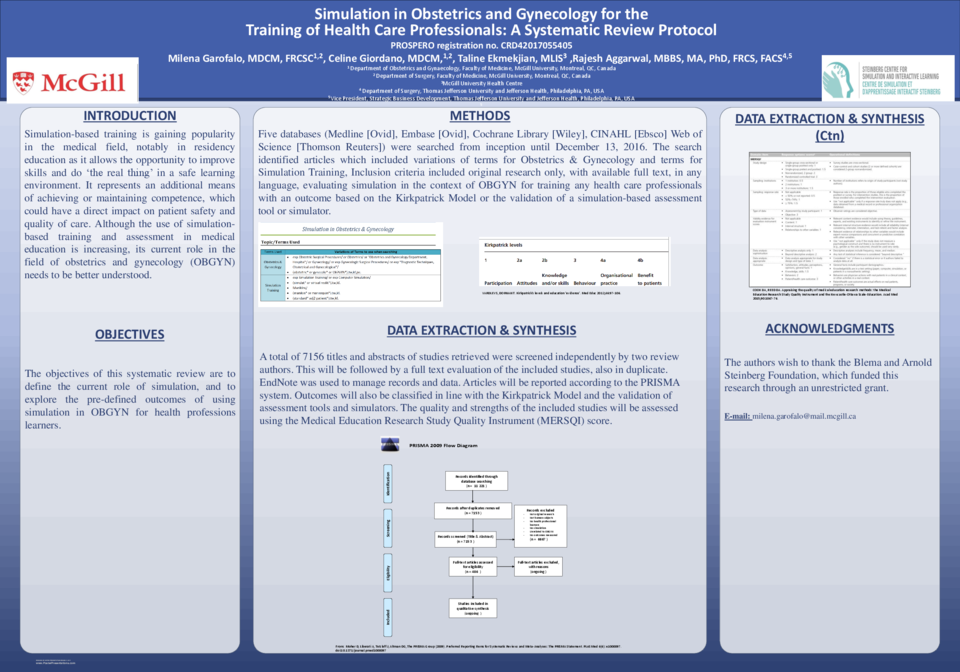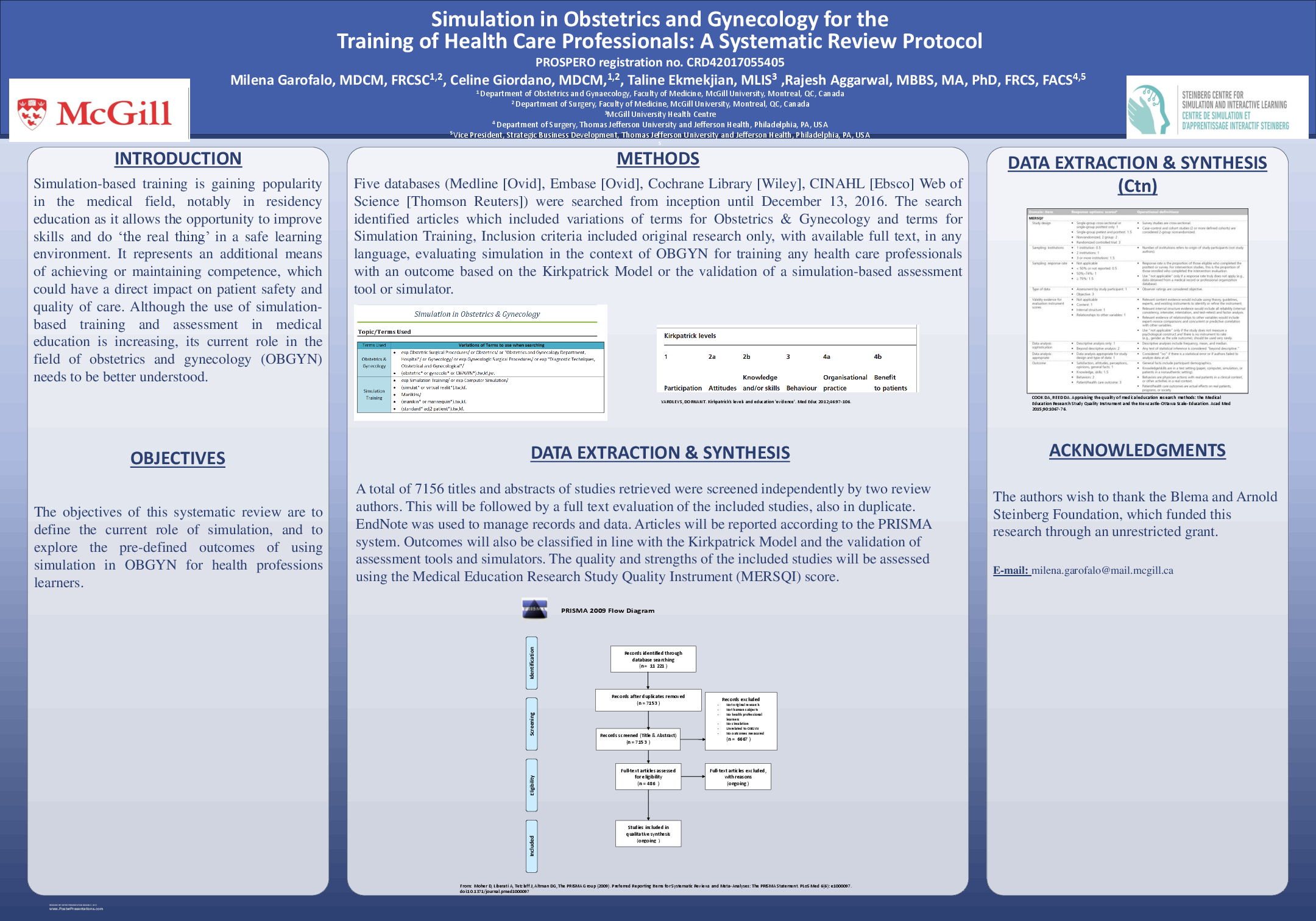Abstract
Introduction: Simulation-based training is gaining popularity in the medical field, notably in residency education as it allows the opportunity to improve skills and do ‘the real thing’ in a safe learning environment. It represents an additional means of achieving or maintaining competence, which could have a direct impact on patient safety and quality of care. Although the use of simulation-based training and assessment in medical education is increasing, its current role in the field of obstetrics and gynecology (OBGYN) needs to be better understood.The objectives of this systematic review are to define the current role of simulation, and to explore the pre-defined outcomes of using simulation in OBGYN for health professions learners .
Methods: Five databases (Medline [Ovid], Embase [Ovid], Cochrane Library [Wiley], CINAHL [Ebsco] Web of Science [Thomson Reuters]) were searched from inception until December 13, 2016. The search identified articles which included variations of terms for Obstetrics & Gynecology and terms for Simulation Training, Inclusion criteria included original research only, with available full text, in any language, evaluating simulation in the context of OBGYN for training any health care professionals with an outcome based on the Kirkpatrick Model or the validation of a simulation-based assessment tool or simulator.
Data Extraction & synthesis: A total of 7156 titles and abstracts of studies retrieved were screened independently by two review authors. This will be followed by a full text evaluation of the included studies, also in duplicate. EndNote was used to manage records and data. Articles will be reported according to the PRISMA system. Outcomes will also be classified in line with the Kirkpatrick Model and the validation of assessment tools and simulators. The quality and strengths of the included studies will be assessed using the Medical Education Research Study Quality Instrument (MERSQI) score.






